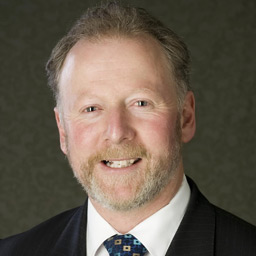legal
An NFP Dispute: a Tale of Two Hugs
Published: March 6, 2020
Read Time: 8 minutes

Summary
This story concerns a cultural group that formed a church in a Melbourne suburb to promote their faith. During 2019 an “us and them” culture developed with a new church committee adopting an authoritarian populist governance style. I do not make judgment about that style but mention it to set the scene.
I acted for certain members (the “accused” members) who faced accusations from the committee and the committee’s associates. The accused members felt powerless and unable to respond effectively.
This story shows how the accused members did in fact address the committee’s conduct.
Summary of facts
In March 2019 a member complained to the church secretary regarding CCTV operating without warning signage in an enclosed church area where women breast fed their children when the baby room was full.
The committee subsequently issued a “final warning” letter to the member threatening expulsion, stating the member raised his complaint “aggressively”. Later the committee said that women “adjusting their dress” in the CCTV area may have “questionable” intentions.
At a June 2019 general meeting another member (I describe as “vexatious” for reasons that will become obvious) raised similar allegations. He also used informal church social media under his administration. According to the accused members, the vexatious member alleged that a female member was trying to “sexually entrap” the church pastor and other members were violent thugs.
Church members who spoke at the June meeting in defence of the accused members were shouted down. The committee did not mediate discussion. Some allegations were included in the draft June 2019 general meeting minutes.
A day after the June meeting the accused members received letters from the committee summarily expelling them from the church for “unacceptable conduct”.
The accused members tried to seek mediation at the Dispute Settlement Centre of Victoria. However the church committee did not want to mediate. So matters went to three hearings before Magistrates Courts in Victoria.
The “peaceful practice” order
In September 2019 the accused members obtained a Magistrates Court order under the Associations Incorporation Reform Act 2012 (Vic) (“AIR Act”) oppressive conduct provisions. This order “restrained” the church and its committee “from preventing the plaintiffs peacefully practising their faith as members” of the church.
According to the Magistrate, the church committee presented “no evidence” to support their defence that the purported expulsions were lawful.
The accused members also sought an order to remove offensive comments in the draft June general meeting minutes. The Magistrate expressed reluctance to interfere too much. During an adjournment counsel attempted unsuccessfully to negotiate a draft order. The accused members eventually told the court they would speak to the problems in the draft minutes at the next church AGM.
Costs were reserved with the church committee later paying most of the accused members’ costs.
The accused members and their supporters were astonished that a church could be restrained from preventing people peacefully practicing their faith; in reality it was the church committee’s conduct towards the accused members that was restrained.
Still, the issues did not abate; the accused members told me a post appeared on the church social media site immediately after the order was granted stating “We must remember that Satan has his miracles too” – a statement understood by the accused members as meaning they were Satan’s followers. That post was made in the name of the church pastor.
The “brawl” allegation
In October 2019 another Magistrates Court considered a “brawl” allegation. The vexatious member applied for an intervention order against an accused member “on behalf of the church”. He did not try to settle his concern by the dispute process in the church’s constitution. His witnesses were church committee members.
The accused members were astonished that a church member could swear an oath “before Almighty God to tell the truth, the whole truth…” and then not actually tell the whole truth. But that is what happened in court.
The Magistrate found the vexatious member to be “an unreliable witness” who gave testimony “directly contradicted” by CCTV evidence.
The whole truth (brought into evidence by the accused member’s witness and their copy of the CCTV) supported the facts that:
- the vexatious member said a word considered disrespectful to women
- the accused member apologised to the church for raising his voice in reaction to the vexatious member’s word, and then gave the vexatious member two hugs
- hugs are a church custom of forgiveness and fellowship.
No brawl occurred. The Magistrate dismissed the intervention order application.
The accused members told me that the Magistrate’s finding did not stop the vexatious member from posting a comment on church social media that he had “won”; he said his purpose was to incur the accused member’s cost and time. In that vexatious sense, he was successful.
Independent chair order
In November 2019 and two weeks prior to the AGM, another general meeting became a shouting affair. We provided a mobile phone recording of the meeting to lawyers acting for the committee (the committee had new lawyers, with the previous lawyers’ retainer ending after the September litigation).
Without a response from the lawyers, the accused members (who now numbered over 16 church members) sought an order under the AIR Act oppressive conduct provisions to appoint an independent chair for the AGM. They also wanted an order that would allow any member to speak for 5 minutes at the AGM if they wished.
Initially some Magistrate’s Court time was spent to determine if the accused members had “standing” to bring their request to court. The Magistrate quite properly said the accused members had not provided evidence that they were church members.
The accused members said via their counsel that they tried to obtain a copy of the church “register of members” but were denied. Copies of emails were presented. The Magistrate then told church committee members to physically go to the church and bring the membership register back to court. All of that took time.
The church committee’s counsel sought to dismiss the application entirely. Counsel also alleged the independent chair nominated by the accused members was possibly biased, however he did propose alternatives. The accused members accepted one of those alternatives. The Magistrate granted an order appointing an independent chair for the AGM on that basis.
The Magistrate did not grant the “5 minutes each” order because in her Honour’s opinion, the order might restrict the independent chair’s role. However the Magistrate did say to counsel that she expected all members would be given an opportunity to speak.
It is significant that at the AGM, the independent chair set aside the June general meeting minutes entirely; those minutes remain un-ratified.
Why didn’t they leave?
Counsel for the accused members conceded in September that there were several culture specific churches his clients could go to. But for the accused members, “walking away” would have meant ostracism from their faith and cultural community. The allegations against the accused members were widely known in the particular cultural community and the members’ reputations were badly (almost overwhelmingly) damaged.
In addition, the accused members felt that if they left the church, the committee would then purge other church members. Their concerns were justified. In October, lawyers acting for the committee announced an “investigation” against certain members who had supported the accused members.
Conclusion
When it comes to democratically organised NFPs, it is impossible to have meaningful discussion about governance without considering members. Members have rights to vote and rights with regard to oppressive conduct. In the case of the church, members comprised some of the people for whom the church was actually established to support; that is, members were some of the charity’s beneficiaries.
So here are some suggestions if NFP members perceive there are governance issues:
- Members are generally obliged to first try to resolve issues internally by informal discussion, formal complaint processes and mediation set out in a constitution, or perhaps a vote at the next AGM;
- In the absence of resolution internally, members can exercise rights including under the “oppressive conduct” provisions of NFP legislation;
- Litigation is more likely to succeed if draft orders seek to de-escalate tension and restore good governance, not simply “punish” governing body members; and
- Without giving up rights, always be prepared to forgive.
Legal background: the “oppressive conduct provisions”
Sections 66-68 of the AIR Act state that association members can apply to a Magistrate’s Court for orders when their association has “engaged or proposes to engage in oppressive conduct”. “Oppressive conduct” is conduct that treats a member unfairly or conduct that is “contrary to the interests of the members as a whole.”
The legislation empowers a court to make orders to “regulate the conduct of the association’s affairs in the future”.
In Imam Ali Islamic Centre v Imam Ali Islamic Centre Inc [2018] the Victorian Supreme Court said the AIR Act does not permit a court to simply “declare” that a person is oppressive. So a party cannot use the AIR Act to “prove” the other party is (to quote a commentator) an “arrogant power drunk association criminal”.
Instead courts look at what is necessary to address “the consequence of events”. To put this another way, it is not so much the initiating event, but where issues within the NFP are escalating to, that may concern the court.
The ACNC may also have jurisdiction to intervene if it is willing to do so. This is because ACNC Governance Standard 2 requires charities to ensure “members have an adequate opportunity to raise concerns about governance”.
Disclaimer
The information presented in this paper is of a general nature only and does not constitute legal advice or claim to provide a complete explanation of the law relating to oppressive conduct. Readers are encouraged to seek their own legal advice for their specific situation. Unless otherwise indicated, the opinions expressed in this paper are those of DF Mortimer & Associates.
Liability limited by a scheme approved under Professional Standards Legislation
Share this Article
Recommended Reading
Recommended Viewing
Author
-
Principal
DF Mortimer & Associates
- About
-
LL.B, Grad Dip Legal Prac., Grad Cert Dispute Res. Admitted to practice in the Supreme Courts of NSW and Victoria.
Derek Mortimer is principal of DF Mortimer & Associates, a Melbourne based boutique law firm established in 2009 that practises exclusively in not-for-profit and charity law. Derek has a reputation for patience, diplomacy and fairness when assisting with the resolution of internal disputes within not for profit organisations. He is valued by his clients for his down to earth, empathetic approach to their needs for legal assistance
Derek founded the Law Institute Victoria “Charities and Not for profit Law Committee” and served as its chair for 9 years. He continues to sit on that committee. Derek contributes submissions, presentations and articles to a variety of government agency reviews, public forums and peer reviewed journals. In particular Derek has contributed chapters on “Formation” and “Dispute Management” to the Thomson Reuters Not for Profit Best Practice Manual (2013).
Found this article useful or informative?
Join 5,000+ not-for-profit & for-purpose directors receiving the latest insights on governance and leadership.
Receive a free e-book on improving your board decisions when you subscribe.
Unsubscribe anytime. We care about your privacy - read our Privacy Policy .










